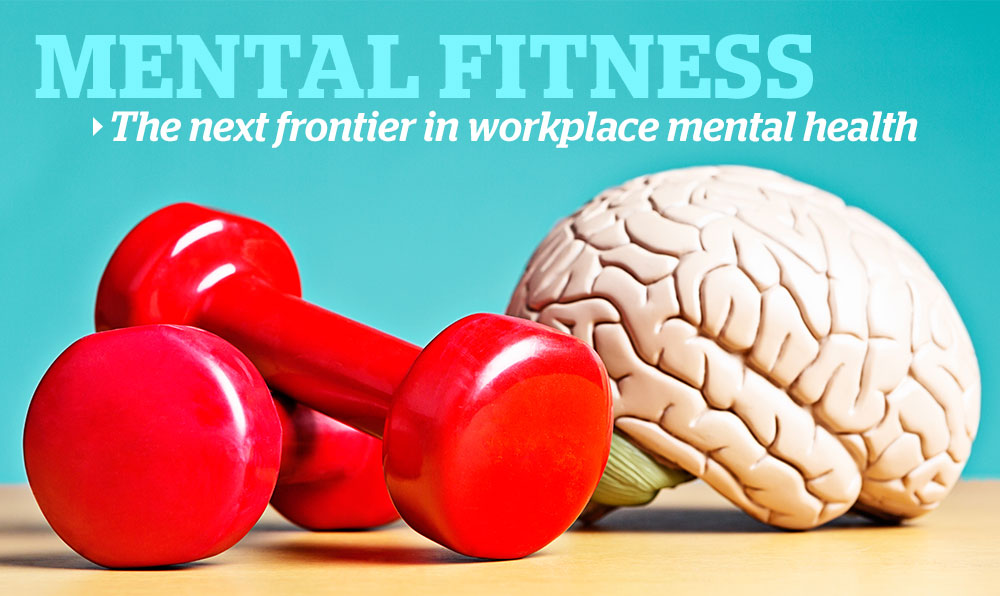

Columns/Blogs
Features
Mental Health
How to leverage daily positive self-affirmations
By Bill Howatt

EDITOR’S NOTE: ‘Mental Fitness: The next frontier in workplace mental health’ is a weekly series, in partnership with Dr. Bill Howatt of Howatt HR Consulting in Ottawa. This series takes a deeper look at mental fitness — an approach to prevent mental harm and promote mental health.
Do you believe what you say to yourself?
Sadly, too many are unaware of how negative self-affirmations (for example: self-downing things we say) about our value, capability, or situation shape how we interact with the world.
When we believe we are not good enough in some area of our life, we tend to lose hope and stop trying. We do this for self-protection; if we do not try, we cannot get hurt anymore.
A personal, professional, or intimate relationship breakdown is one of the biggest emotional challenges anyone will deal with. How they respond depends on their belief system.
I heard one speaker say, “No one can emotionally hurt us unless we give them permission to do so.” They were sharing a story of teachings Viktor Frankl discovered in a Nazi prison camp.
My takeaway is how we define a situation and the words we say to ourselves about it matter.
Self-shaming affirmations
Self-shaming affirmations are negative things we say to ourselves in response to an event for which we blame ourselves.
They train the brain to create a belief system that automatically blames ourselves for our current reality.
Some examples:
- My boss did not promote me because I am not smart enough.
- She broke up with me because I am not good enough for her.
- I am alone this weekend because no one likes me.
- He did not return my text because I am not important enough.
These self-shaming affirmations are automatic thoughts believed to be true. But an automatic thought is not a fact.
Psychologically Safe Workplace Awards provide employers tools, data on mental health
Tips for leveraging daily positive self-affirmations
“When you can look yourself in the mirror and tell yourself daily for 12 months you are kind, confident and loveable, you may discover you are.” — Dr. Bill Howatt
I can recall one of my most influential mentors in university offering one of my most transformative affirmations, “You have all you need to succeed in life; you just need to allow others to help you.”
I thought that because I could not write well due to my dyslexia, I would never get a job where I could use my creativity. It turned out that I could allow my mind to run free with a patient editor and let them figure out the rest.
Accept first and foremost that we will believe what we say to ourselves over and over. Repetition is the way we program our brain.
If you have spent 20-plus years self-shaming, you cannot expect that programming to stop overnight. However, if you commit to the following steps every day for six months, you can program your belief system to believe what you want.
Stop any negative self-shaming: Pay close attention to the words you say to yourself and out loud that could be self-shaming affirmations. Commit to catching yourself to stop any negative self-affirmations, any excuses where your response has some version of your not-good-enough, not-strong-enough, not-smart-enough or any other garbage.
Once you start focusing on stopping this, you will be surprised at how many times you catch yourself. Be patient and kind to yourself. This process can take some time to stop.
Create realistic, positive self-affirmations: Leveraging positive self-affirmations requires defining what you want them to be. Start by ensuring they are grounded in what you can control. For example, daily saying, “I will win the lottery” is dependent on chance, compared to, “I am good enough as I am, I am lovable, I am worthy.”
For whatever area of your life you want to improve — finance, love, health, work, family — think what would be helpful for you to believe in a positive versus a negative light.
Most of us are good at finding negative self-affirmations. This strategy is about defining what you want to believe about you in these situations and then putting in the repetitions required to train your brain to create a positive mental state to cope better with life challenges that will surely come.
Daily practice: If you do not believe in you, it is hard for others to believe in you because they will wonder why they are believing if you are not.
After six to 12 months, you may be amazed how you can start to rewire your brain with new positive programming that will serve you well. To reach that point, feed your brain with positive self-affirmations.
I have created two positive self-affirmations I tell myself daily as a part of my mental fitness plan morning ritual.
I am suggesting this microskill because I know firsthand from my clients and myself that it works. But it only works if you do it daily with conviction because your brain will know if you believe what you are saying.
 Dr. Bill Howatt is the Ottawa-based president of Howatt HR Consulting.
Dr. Bill Howatt is the Ottawa-based president of Howatt HR Consulting.
If there is a particular microskill or topic you would like to see Dr. Howatt write on that supports employees’ mental health in the workplace, please send your request to Talent Canada editor Marcel Vander Wier.
Print this page